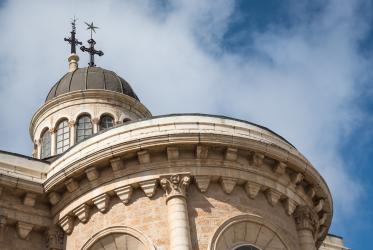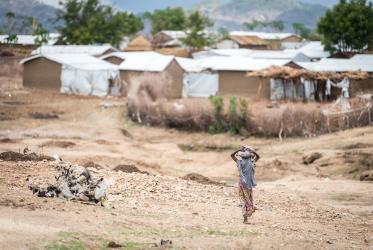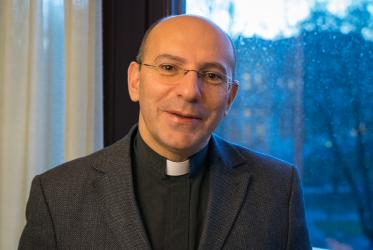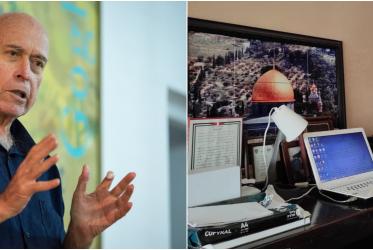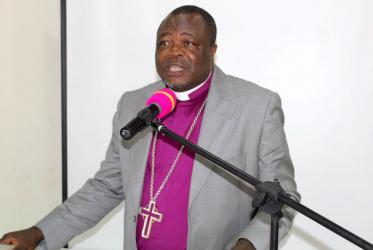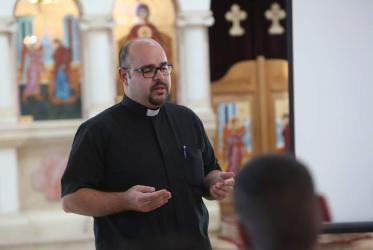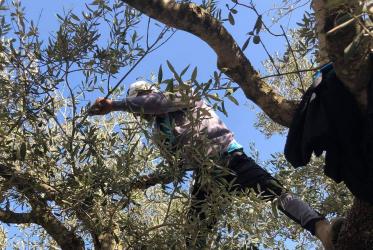Displaying 161 - 180 of 180
01 February 2021
Palestinian Christian peace worker yearns for courageous leaders
10 December 2020
A hopeful, but not optimistic Palestinian ecumenist
09 December 2020
As olive harvest draws to a close, who is helping the farmers?
08 December 2020
Cameroon conference on peace empowers religious leaders
30 November 2020
On World Olive Tree Day, planting is an act of love
26 November 2020
Fr Jamal Khader: “We need to keep hope alive” in Palestine
25 November 2020
In Palestine, “God honored this olive tree”
12 November 2020
“Your life is in peace when you collect the olives"
29 October 2020
An interview with the Ethiopian Patriarch, Abune Matthias
14 February 2017

